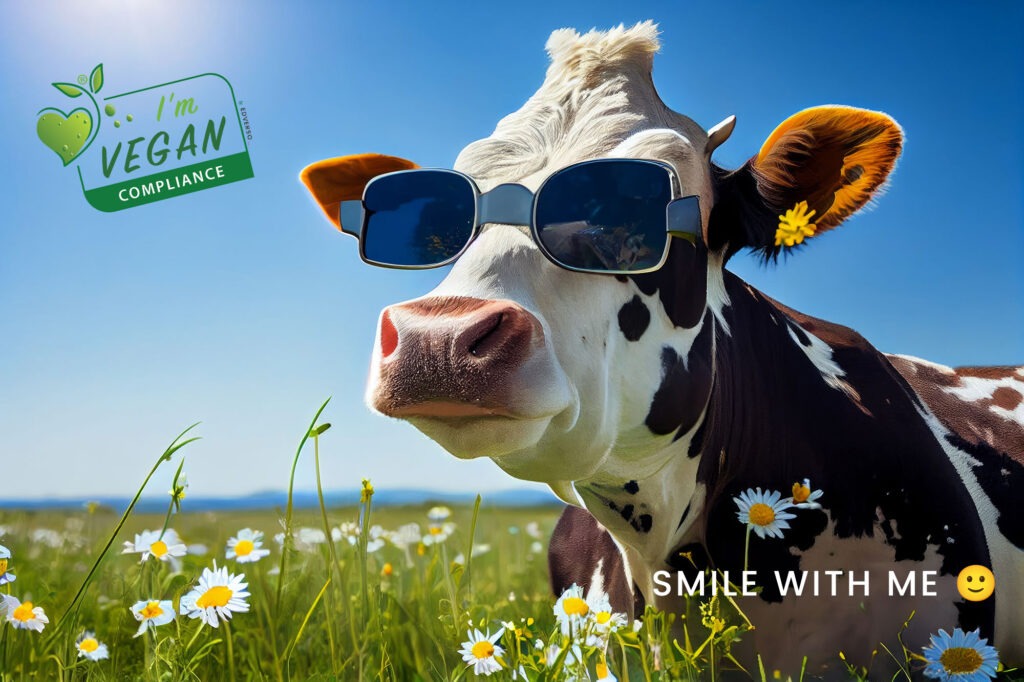Vegan is
a life's philosophy
for a better society
.
Why go Vegan
It's time for introspection: if we can lead lives filled with delicious food and beverages, enjoy improved health, leave a smaller environmental footprint, and spare the lives of other creatures, why hesitate? As individuals, we have the power to make choices that positively impact not only ourselves but also the world around us. Let's consider the profound impact of our decisions and strive towards a more compassionate and sustainable future for all.
Veganism promotes kindness towards animals, people, and the planet’s future in several ways:
Animal Welfare
By adopting a vegan lifestyle, individuals refrain from directly contributing to the exploitation, suffering, and harm inflicted on animals in industries such as factory farming, animal testing, and animal entertainment. Veganism aligns with the ethical principle of compassion towards all living beings, allowing animals to live free from exploitation and cruelty.
Human Health
A plant-based diet rich in fruits, vegetables, whole grains, legumes, nuts, and seeds offers numerous health benefits. Studies have shown that vegan diets are associated with lower risks of heart disease, certain types of cancer, hypertension, type 2 diabetes, and obesity. Additionally, reducing reliance on animal agriculture can mitigate the risks of zoonotic diseases and antibiotic resistance, safeguarding public health.
Environmental Sustainability
Animal agriculture is a significant contributor to environmental degradation, including deforestation, habitat loss, water pollution, greenhouse gas emissions, and biodiversity loss. By transitioning to a vegan diet and reducing demand for animal products, individuals can mitigate their ecological footprint and help combat climate change. Plant-based agriculture typically requires less land, water, and resources, making it more sustainable and efficient in the long term.
Resource Conservation
Producing plant-based foods requires fewer resources compared to animal agriculture. Vegan diets have a lower environmental impact in terms of water usage, land usage, and energy consumption. By choosing plant-based alternatives, individuals contribute to the conservation of natural resources and promote sustainable food production practices.
Global Food Security
Plant-based diets have the potential to feed more people while utilizing fewer resources. By reallocating agricultural resources from animal feed production to direct human consumption, veganism can help address global food insecurity and promote food justice.
In summary, veganism fosters kindness towards animals by rejecting exploitation, promotes human health through nutritious plant-based diets, and contributes to environmental sustainability by reducing ecological footprint and resource consumption. Embracing a vegan lifestyle offers a compassionate and sustainable approach to living that benefits animals, people, and the planet’s future.



Why vegetarian isn't enough
The suffering inflicted by the dairy and egg industries is often less highlighted compared to the plight of animals in factory farming. In dairy production, the process involves the inherent exploitation and harm of countless male calves deemed surplus to the dairy farmer’s needs. These male calves are typically slaughtered shortly after birth, as they are considered economically unviable for milk production. Additionally, female cows are often prematurely culled from the herd when their milk production declines, leading to their untimely deaths.
Similarly, in egg production, including systems labeled as ‘ethical’ or ‘free-range,’ the practice of culling male chicks shortly after hatching is widespread. These male chicks are deemed surplus to requirements in the egg-laying industry and are disposed of on the first day of their lives, often by methods such as gassing or grinding.
Despite the perception of more humane practices in certain sectors of the dairy and egg industries, the underlying exploitation and disregard for animal welfare remain prevalent. By raising awareness of these issues, individuals can make informed choices to reduce their contribution to the suffering of animals in these industries.
Ethical meat?
It’s understandable to desire the belief that the meat we consume is sourced ethically, with the animals living fulfilling lives free from suffering. However, the reality is far from this ideal. All living beings, including ‘food animals,’ experience fear and distress when faced with death, regardless of how they were treated during their lives.
Whether raised on a factory farm, labeled as ‘free-range,’ or deemed ‘organic,’ the journey to the slaughterhouse elicits the same primal fear in animals. Despite efforts to improve living conditions or adhere to certain welfare standards, the ultimate fate of these animals is the same – they are subjected to the terror and anguish of the slaughter process.
Recognizing this truth is essential in understanding the inherent cruelty and injustice of the meat industry, regardless of the labels or assurances provided by producers. By acknowledging the shared experience of fear and suffering among all living creatures, we can cultivate empathy and compassion, leading to more conscientious choices regarding our consumption habits.
The good news
The positive news is that we have the power to make a difference. Every time we make a purchase at the store or order food in a restaurant, every meal we consume presents an opportunity to support animals. By opting for vegan alternatives instead of animal products, we actively advocate for farmed animals worldwide.
Fortunately, transitioning to a vegan lifestyle has never been more accessible. Veganism is gaining widespread acceptance and popularity, with individuals from diverse backgrounds embracing its benefits. As awareness grows and more people choose to live compassionately, the demand for vegan options continues to increase, making it easier than ever to make ethical choices in our daily lives.

